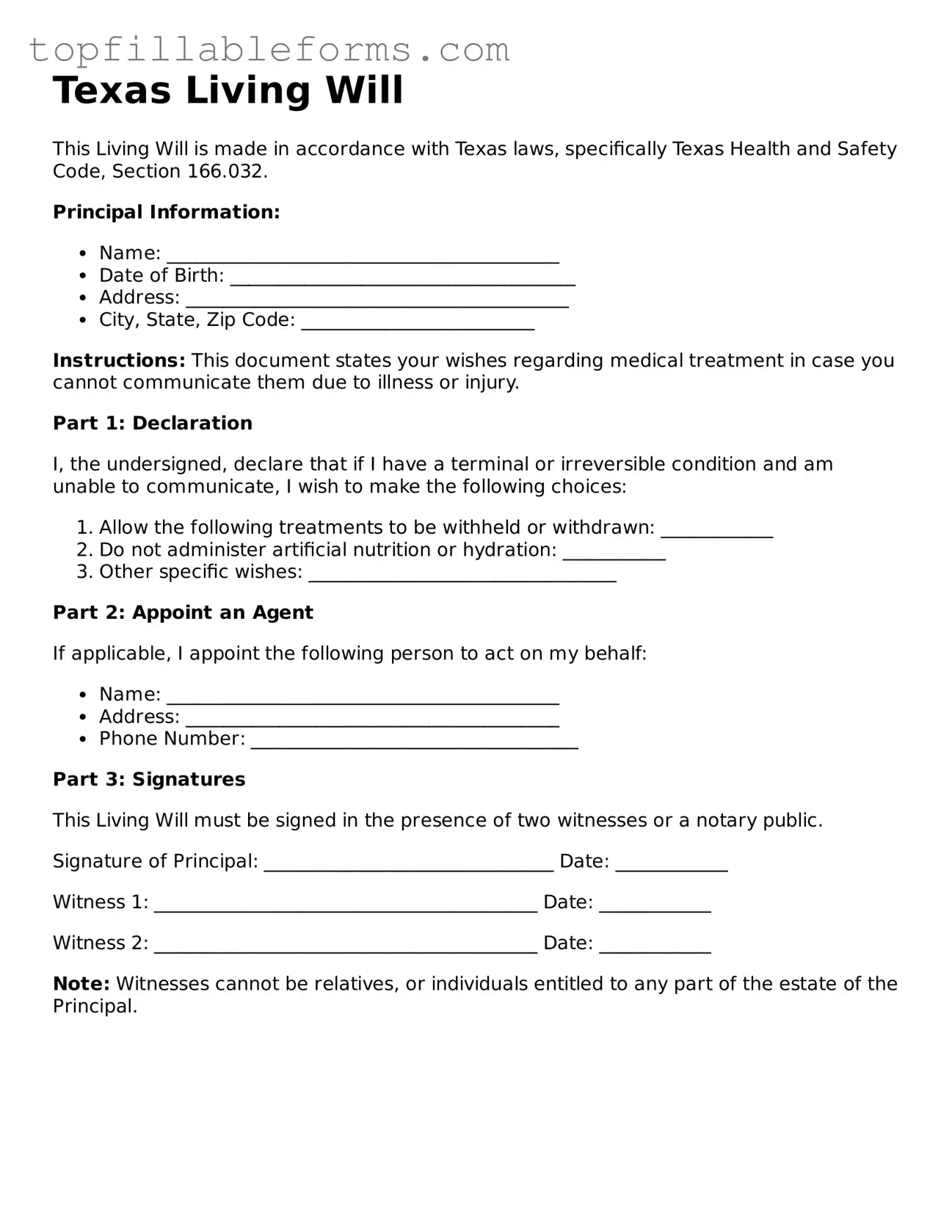Attorney-Verified Living Will Template for Texas
A Texas Living Will form is a legal document that outlines an individual's wishes regarding medical treatment in the event they become unable to communicate those wishes themselves. This form allows people to express their preferences for life-sustaining treatments and end-of-life care. Understanding this important document can help ensure that your healthcare decisions align with your values and desires.
Open Living Will Editor Here

Attorney-Verified Living Will Template for Texas
Open Living Will Editor Here
Finish the form now and be done
Finish your Living Will online by editing, saving, and downloading fast.
Open Living Will Editor Here
or
▼ PDF File
